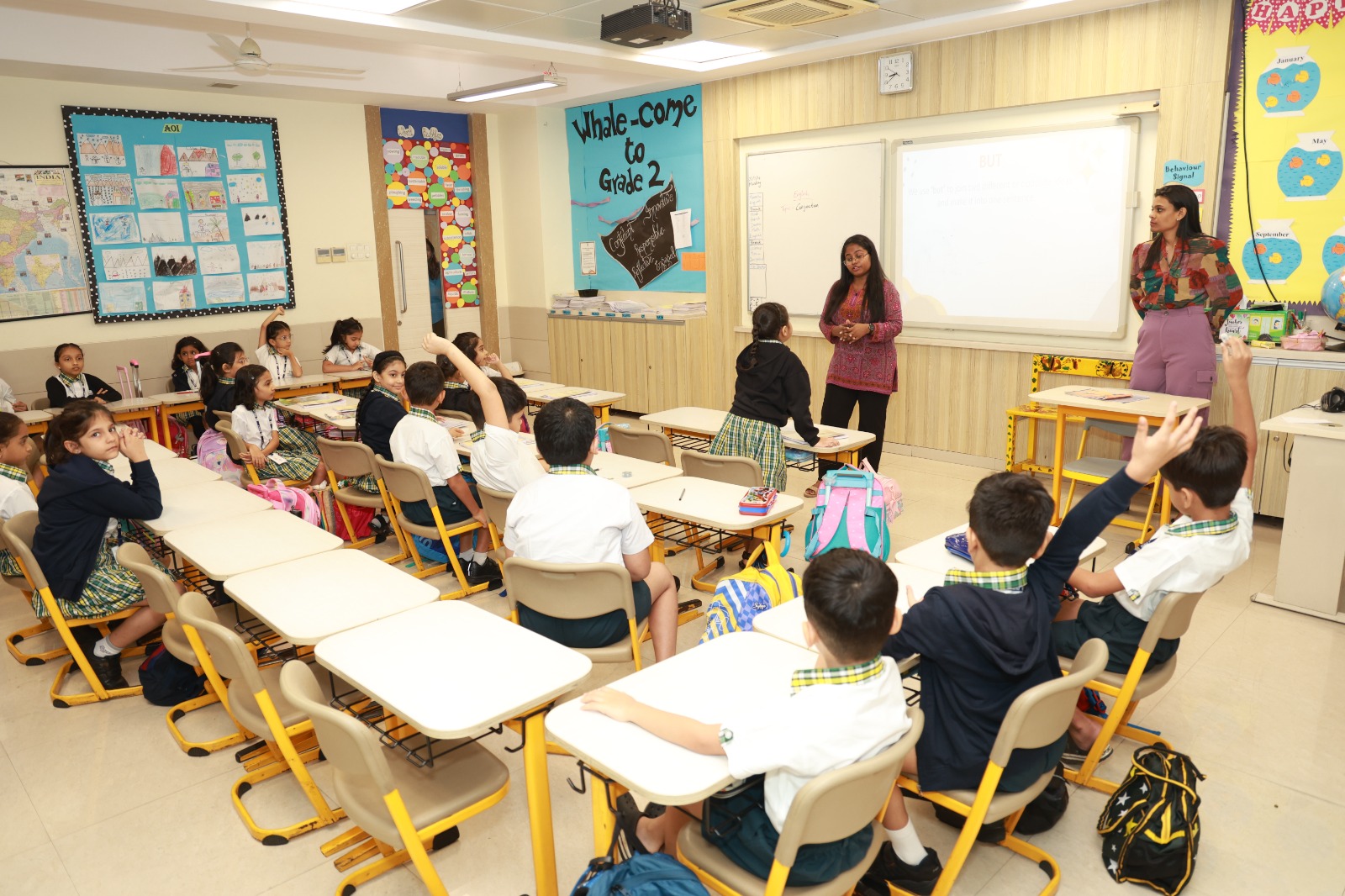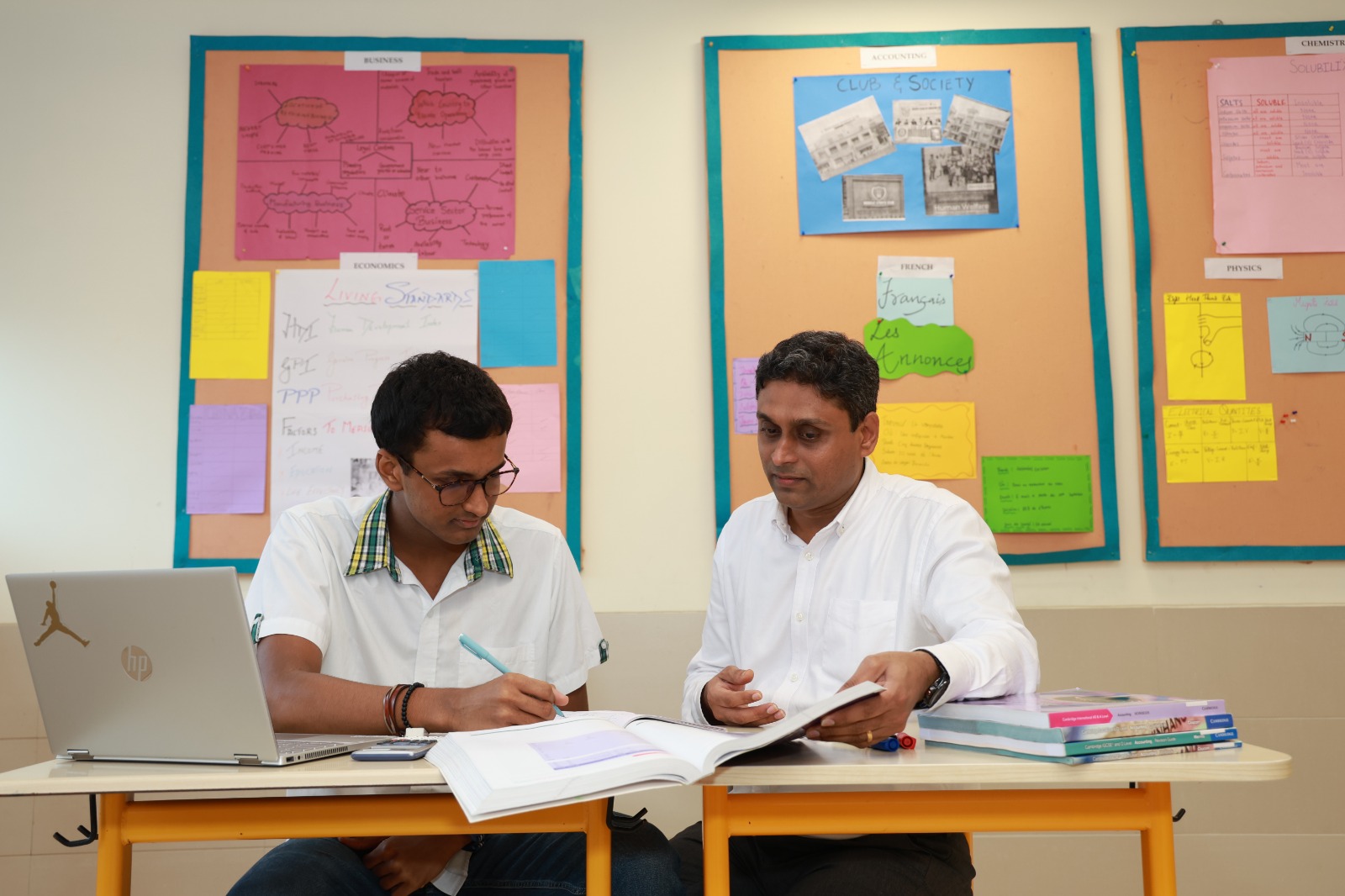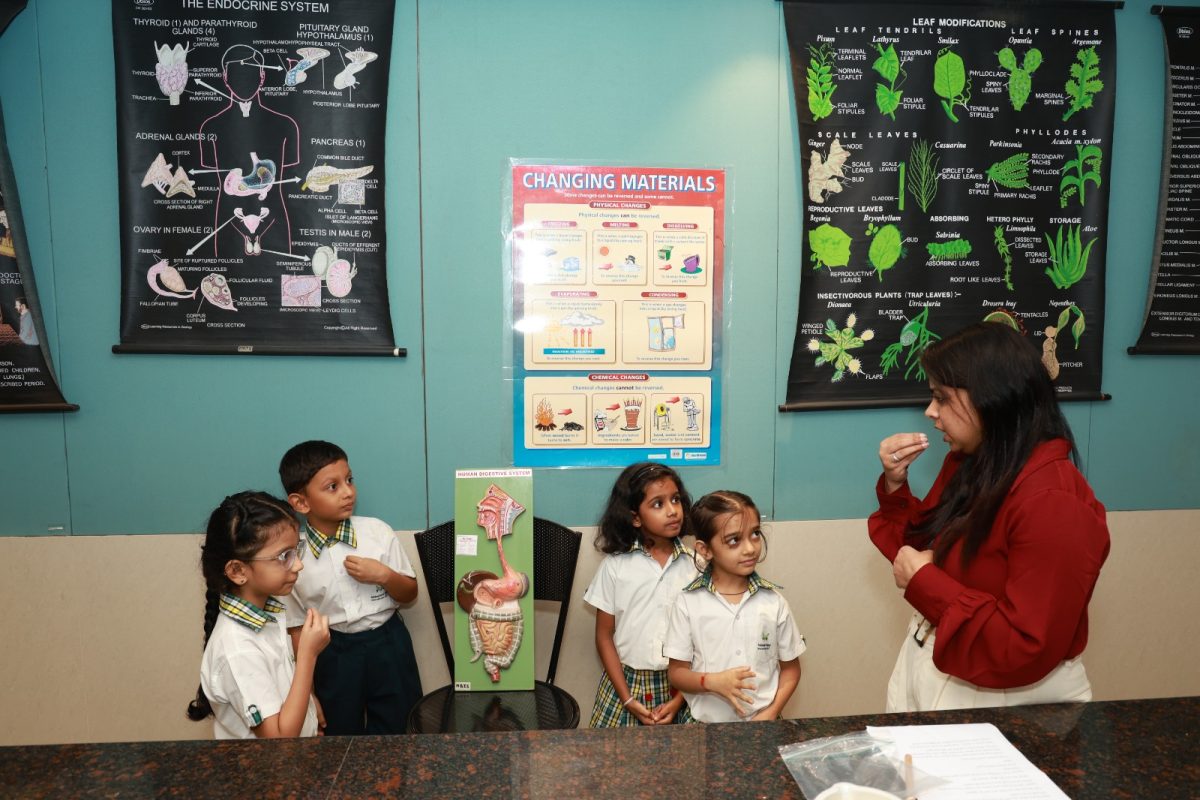In the rapidly changing field of education the number of students in a class often plays a pivotal role in shaping the quality of learning experiences. While traditional classrooms with greater numbers of students are common in most institutes, the advantages of small class sizes and its significance in offering a transformative alternative is often left unnoticed.
Challenges of Large Class Sizes in Traditional Classrooms
One of the key challenges in a traditional classroom for schools in Mumbai is its large class size, which not only makes it difficult for students to receive personalised attention but also limits their ability to actively engage in the learning process. This can sometimes lead to decreased participation and can hinder from achieving the desired learning outcomes.
Additionally, access to learning resources can pose significant obstacles for students. When lessons are delivered at a middle-level pace, learners who are advanced may struggle to stay engaged, while those who need more support may find it hard to keep up.
Another argument points towards ‘active learning’ and its effective implementation in such settings. It is noted that active learning which aims at using collaborative learning strategies can be challenging in traditional classrooms where meaningful group interactions are hard to achieve.


The benefits of small class sizes at MBIS.
On the contrary, in smaller class settings, students feel confident to engage in discussions, ask questions, be attentive and relate the subject with real-life situations, making learning more relevant.
This environment allows them to participate more actively, not just in academics but also in other areas of interest, encouraging well-rounded development. As a result, students are more likely to grasp complex concepts, as they are able to learn at their own pace and receive the support they need.
MBIS encourages academic growth and collaborative learning, and believes that individualised attention plays a crucial role in helping students develop a deeper understanding of the subjects they study.
Significance of individualised attention in developing their understanding of the subject.
Individualised attention provides the chance to explore difficult topics in depth, with assignments tailored to match the student’s skill level ensuring they are neither bored nor overburdened. This personalised approach builds trust and rapport, making learning a more collaborative experience.
When students feel supported and valued, their motivation increases, often leading to better performance. Furthermore, individual attention encourages students to take responsibility for their learning, helping them set personal goals and develop greater independence in their educational journey.
MBIS strives to encourage holistic development in smaller classrooms
MBIS is committed to ensuring steady progress by implementing strategies that help students to be exceptional in every field.
The facilitators are adept in designing lessons to meet the unique needs of each learner, incorporating a mix of activities, games, and hands-on learning experiences. These experiences are further enriched through short educational field trips and collaborative learning strategies that are multidisciplinary in nature.
With fewer students, teachers are able to build strong relationships with their learners, closely monitoring both their academic and social development. This allows for more personalised attention and greater insight into each student’s progress.
Students at MBIS are encouraged to explore, share ideas, and discover new information in a supportive environment. Teachers also prioritise communication with parents, keeping them informed of their child’s progress through regular parent-teacher meetings (PTMs). This partnership between teachers and parents ensures that both are aligned in their efforts to support the child’s learning and overall well-being.
Showcasing student achievements at MBIS: A testament to personalised learning
Our commitment to personalised learning has led to outstanding achievements in both academic and extracurricular activities as we motivate our students to explore their strengths and interests. Here are a few testimonials of the same.
- Nakshatra Sports Event: Our students showcased exceptional talent, securing 2nd place at this prestigious annual inter-school fest.
- Under-12 Girls Football Team: Adding to our accolades, MBIS secured 3rd place in the Meraki Inter-School Tournament, bringing glory to MBIS.
- Anay Lath represented the school with pride at ISSO National Skating Event 2024 event held in Udaipur.
- U-19 DSO Squash Competition: Our students participated in the Division Level Squash Tournament, showcasing determination and skill.
- MBIS was actively represented in the MSSA Boys and Girls Tournament across age groups from Under-10 to Under-16.
- Ayushmaan Goyal (A Level) demonstrated outstanding performance, achieving 4th place in the Division Level Tennis Competition.
- Students from Nursery to Secondary made the school proud by emerging as winners, displaying their artistic brilliance at Rangotsav- an all India Art Competition
- Aarrav Bohra (Grade 2) won bronze in the District Skating Championship and starred in a short film that stood out over 15,000 entries at the New York Film Festival.
- The IGCSE Exam results continued to uphold our tradition of academic brilliance, reflecting the hard work and dedication of both students and teachers.
These diverse achievements demonstrate the impact of a personalised approach to learning at MBIS, where every student is encouraged to pursue their passions and develop their full potential.
Creating a supportive and focused learning environment in smaller classes
To conclude, small class sizes indeed bring a great impact in the learning experience that we provide, and MBIS does so by creating a supportive atmosphere where students feel confident in expressing their ideas, asking questions, and seeking help when needed.
This close-knit atmosphere builds a sense of belonging, where learners are more likely to collaborate with their peers and also develop valuable life skills like empathy, collaboration, problem solving and interpersonal skills.
Our aim has always been to ensure that students at different academic levels can progress at their own pace helping them emerge as achievers of the future.



